ON SEPTEMBER 16, 2022, THE EU PROJECT “PRAVO-JUSTICE” TOGETHER WITH ITS PARTNERS HELD A SEMINAR “THE LAW OF UKRAINE “ON ADMINISTRATIVE PROCEDURE”: MAIN NOVELTIES, CHALLENGES, AND NEXT STEPS” FOR JUDGES OF THE EIGHTH ADMINISTRATIVE COURT OF APPEAL AND DISTRICT ADMINISTRATIVE COURTS OF VOLYN, ZAKARPATTIA, IVANO-FRANKIVSK, LVIV, RIVNE, AND TERNOPIL REGIONS. THE EVENT WAS ALSO ATTENDED BY PROFESSORS FROM THE LAW FACULTY OF THE IVAN FRANKO NATIONAL UNIVERSITY OF LVIV. JUDGES OF THE ADMINISTRATIVE COURT OF CASSATION WITHIN THE SUPREME COURT, REPRESENTATIVES OF THE LVIV REGIONAL COUNCIL FOR JUSTICE REFORM (RCJR) AND THE LVIV REGIONAL MILITARY ADMINISTRATION.
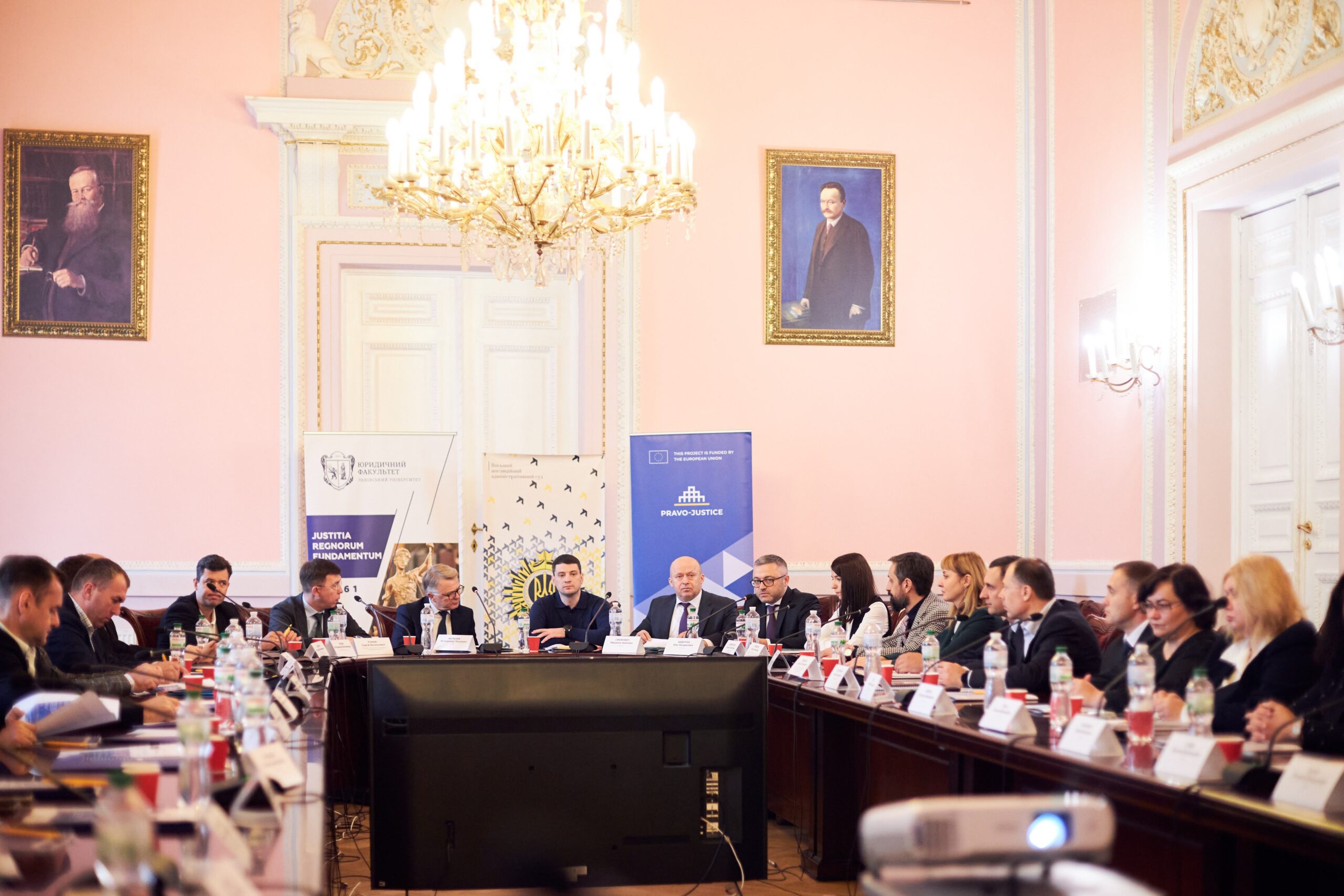
The event is aimed at familiarizing judges with the main novelties of the law, as well as discussing potential conflicts and difficulties that may arise after the law comes into force and ways to resolve them.
“The Law on Administrative Procedure reflects a human-centered approach and contains a whole range of guarantees aimed at protecting the rights of persons applying to an administrative body. To this end, additional responsibilities are imposed on administrative bodies, such as the need to properly motivate the decision and inform the person of the ways to appeal it. We also see such novelties as the category of “interested persons”, the possibility of reconciliation and a number of other positive things that are included in the law.”Oksana Tsymbrivska, Deputy Head of the EU Project “Pravo-Justice“, said.
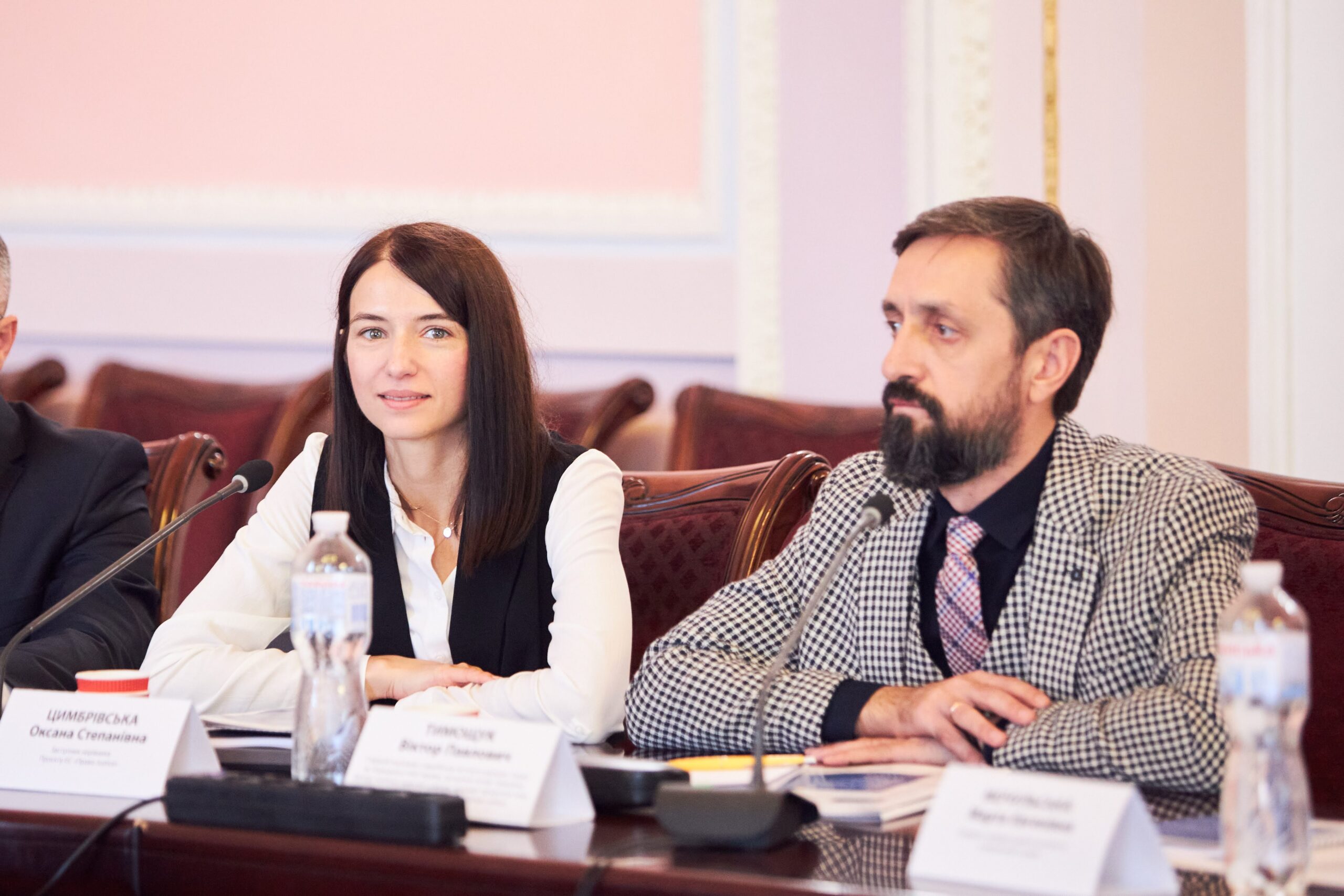
During the first session, Victor Tymoshchuk, national expert of the EU Pravo-Justice Project, told the participants about the subject matter of the law, its place in the system of legislation, key terms and principles: “It is important to emphasize that the Law on Administrative Procedure is not only about the realization and protection of the rights of citizens and business entities in their relations with the state. In fact, it is also a law on the balance of public and private interests. It provides many new tools and opportunities for the public administration to resolve cases in an objective, balanced and timely manner, and to enforce administrative acts. This law finally protects honest public servants by transparently regulating their activities.”
Learn more in the presentation “Novelties of the Law of Ukraine “On Administrative Procedure“”.
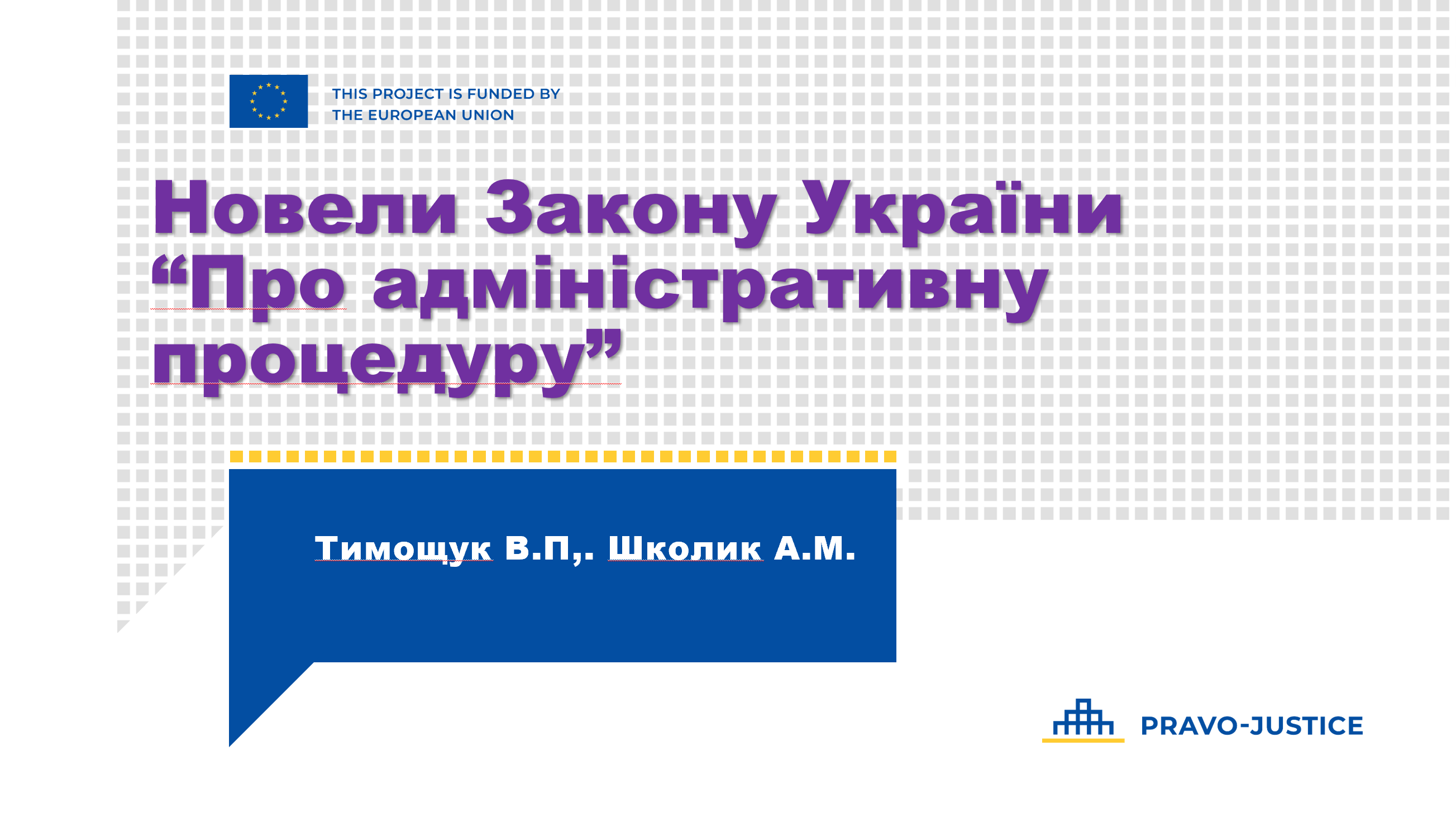
As part of the international block, Edith Zeller, a judge of the Vienna Administrative Court and international expert of the EU Pravo-Justice Project, shared Austria’s experience in applying the Unified Administrative Procedure Act, which was adopted in 1925.
“Administrative courts have to correct procedural errors made by the administrative authority during the preliminary consideration of the case. The administrative court either replaces the administrative decision or confirms that it was made correctly. At the same time, procedural errors of the administrative body almost never lead to the cancellation of its decision in court, and in the vast majority of situations, the judge, after additional consideration of the circumstances, oral hearings to collect evidence and discuss them with the complainant, finds the right decision in the relevant case.”Edith Zeller said.
The unified administrative procedure is intended to unify legislation, thus resolving hundreds of conflicts and becoming a convenient algorithm of actions in situations where citizens and businesses interact with public authorities. At the same time, the risk of conflicts is one of the main challenges of implementing the Law of Ukraine “On Administrative Procedure”, which in one way or another relates to hundreds of laws that need to be amended.
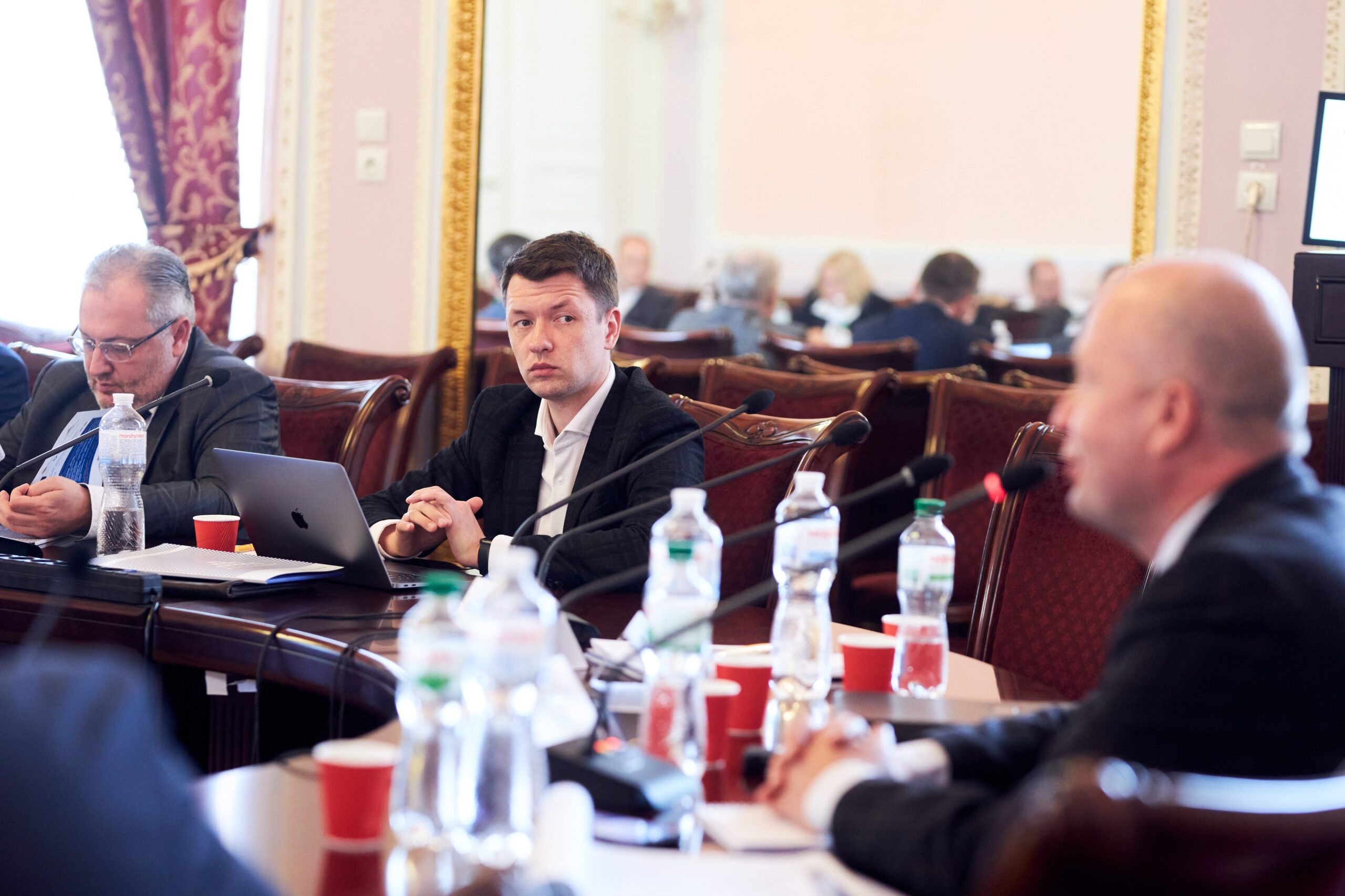
“It is the resolution of potential conflicts that will be very important in the context of law enforcement, and until the legislation is amended to bring it in line with the Law of Ukraine “On Administrative Procedure”, the courts will play a key role. It is through judicial practice that a unified understanding of the principles of the Law of Ukraine “On Administrative Procedure” should be developed, which will take precedence in case of conflicts with special rules that will continue to operate until the relevant changes are made.”Volodymyr Chaban, national expert of the EU Project “Pravo-Justice“, said.
The event is a joint initiative of the EU Law-Justice Project, the Eighth Administrative Court of Appeal, and the Law Faculty of Ivan Franko National University of Lviv. Frankfurt, the Supreme Court, the German Foundation for International Legal Cooperation (IRZ), and the EU4PAR Project.
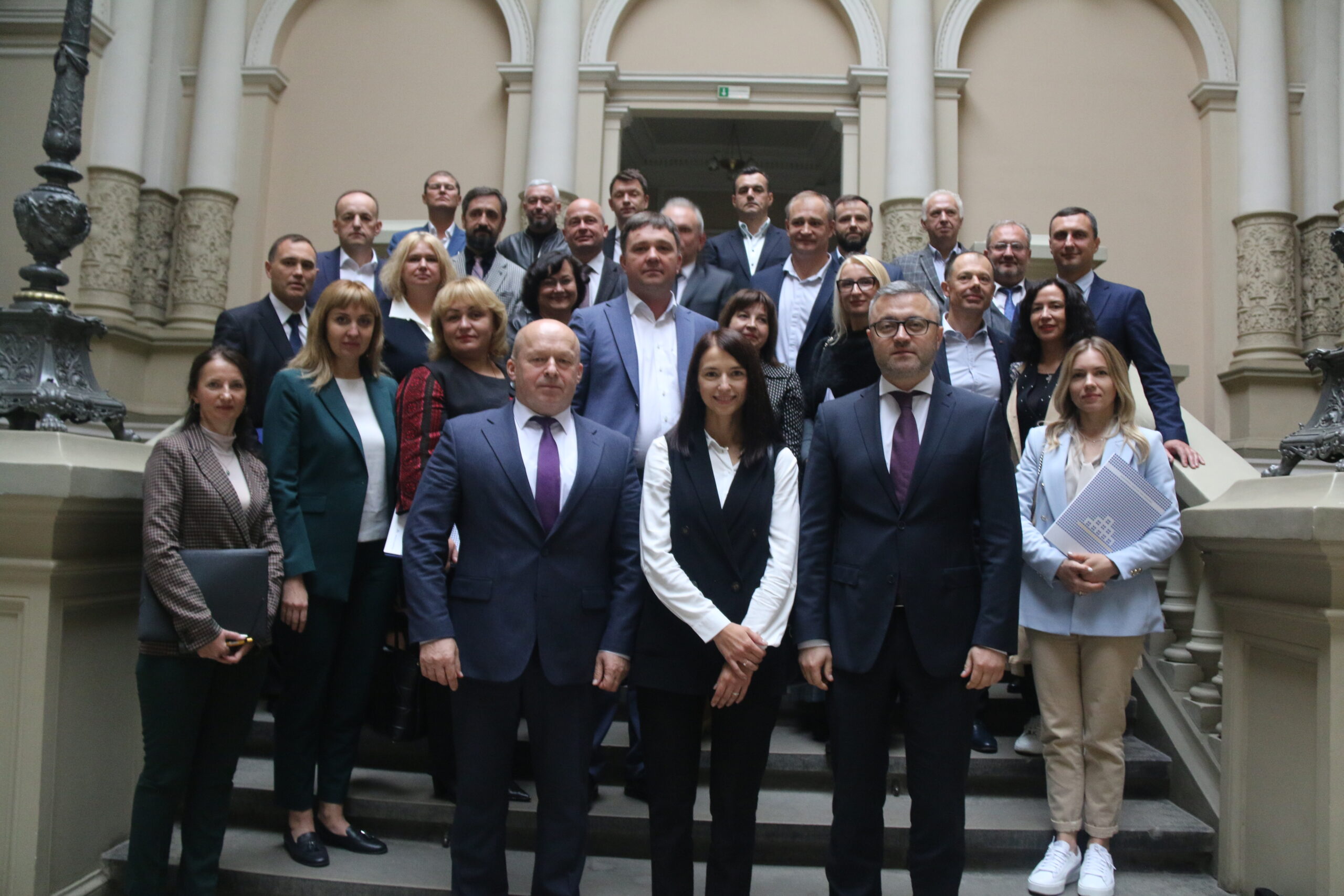
In the future, we plan to hold seminars for district and appellate administrative courts in other regions.
In July-August 2022, the EU Project conducted an express seminar for judges of appellate and district administrative courts at the National School of Judges of Ukraine, as well as a seminar for judges and staff of the Administrative Court of Cassation within the Supreme Court. The development of a standardized course on the Law on Administrative Procedure has also begun, which will become part of the regular training at the National School of Judges.

